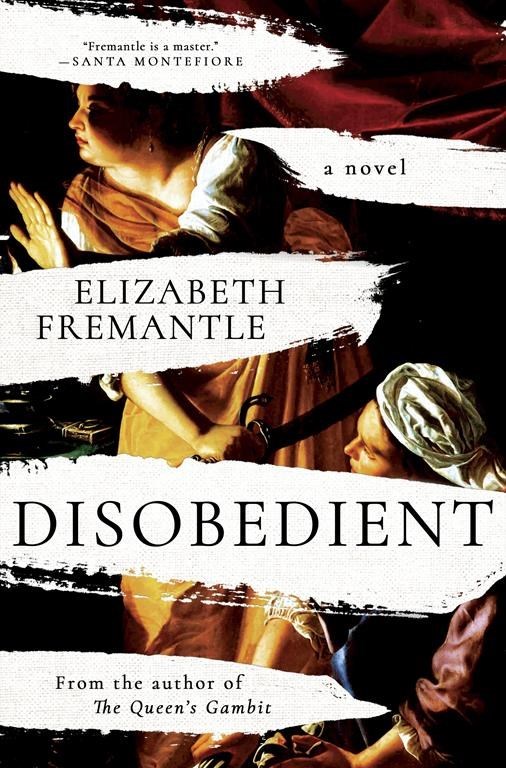āDisobedientā by Elizabeth Fremantle (Pegasus Books)
Artemisia Gentileschiās painting skills quickly surpass her fatherās, but society dictates that as a woman, she must stay home and protect her virtue. Art ā with its unsavory types and naked models ā isnāt exactly fit for a good Roman Catholic girl. And when her painting tutor attacks her, it sets off a cascade of seemingly insurmountable problems and impossible choices.
Author Elizabeth Fremantle deftly paints Artemisiaās painful but inspiring story in her latest biographical fiction, āDisobedient.ā Having already established herself as a writer who champions powerful female leads, Fremantle fleshes out the 17th-century artist who defied the limits placed upon her and became one of the best painters of the Baroque period.
The book starts off with a magical rendition of Artemisia's childhood, the day she witnesses a beheading. Itās thrilling and wonderful to see the world from the eyes of 6-year-old Artemisia to open the story before pivoting to 1611 Rome.
This is the year Artemisia gains her first commissions. Itās also when renowned painter Agostino Tassi rapes her.
And be warned: The scene is truly horrific. The chapter is heartpoundingly tense, sickening, nightmarish. Each word rings disturbingly true, Artemisiaās thoughts tragically relatable ā at first of how to escape or fight, then of how to cope. Beyond the trauma of the assault, Artemisia faces backlash from the community. Her tarnished reputation could spell ruin for her aging father and her young brothers. Marrying her attacker might be the only way to remedy the situation.
āDisobedientā plows forward with an unstoppable force. It would be easy to dry out a historical fiction like this into arid oblivion, or to saturate it beyond fancy and into falsity, but Fremantle strikes an excellent balance that feels like youāre actually there, watching the Gentileschi familyās real struggles and triumphs play out.
The attention to detail ā so necessary in a narrative filled with painters ā is absolutely engrossing and doesnāt let you forget for a moment that this is 17th-century Rome. And the clever chapter names, many with double meanings, share the dark humor of the main character.
āDisobedientā proves the perfect title for the book, which rings the motif repeatedly, layering meaning onto the word like oils on canvas until it takes a dynamic shape and an entirely new image emerges.
In Fremantleās version of the story, the women of the paintings are not merely things to be ogled at; their stories are told in translated interludes. The paintings are evaluated through a feminist lens that acknowledges the artistās experiences and the effect those must have had on their works. Erotic elements of paintings like Caravaggioās āJudith Beheading Holofernesā are frequently situated side-by-side with the double standards of strict piety and virtue pounded into the very women who are sheltered from looking upon such paintings or hearing the Biblical story they're based on. The authorās eye roll in solidarity with the reader is palpable in these paragraphs.
āDisobedientā was everything Iād hoped for and so much more. Fremantle has immense talent and tells the story of an amazing and inspiring woman with wit and certainty.
Donna Edwards, The Associated Press



